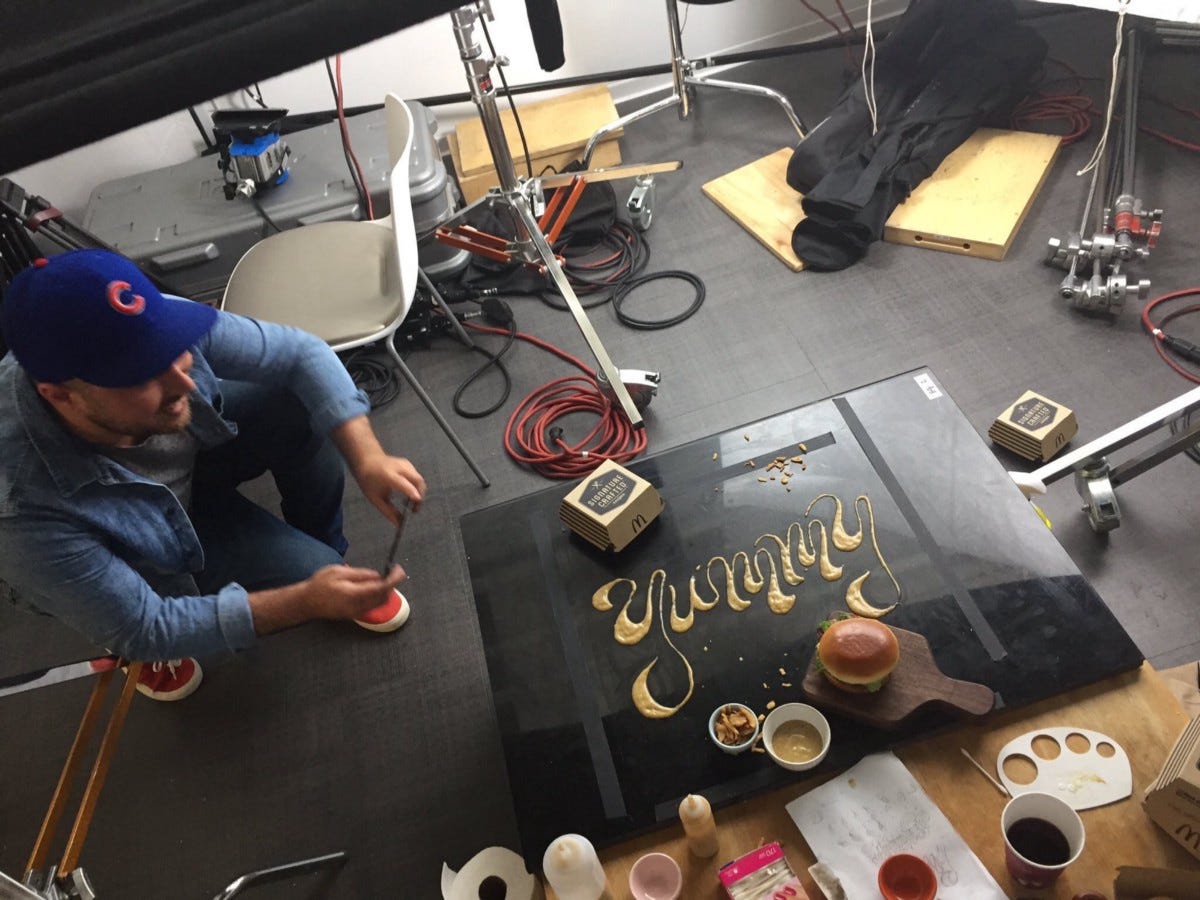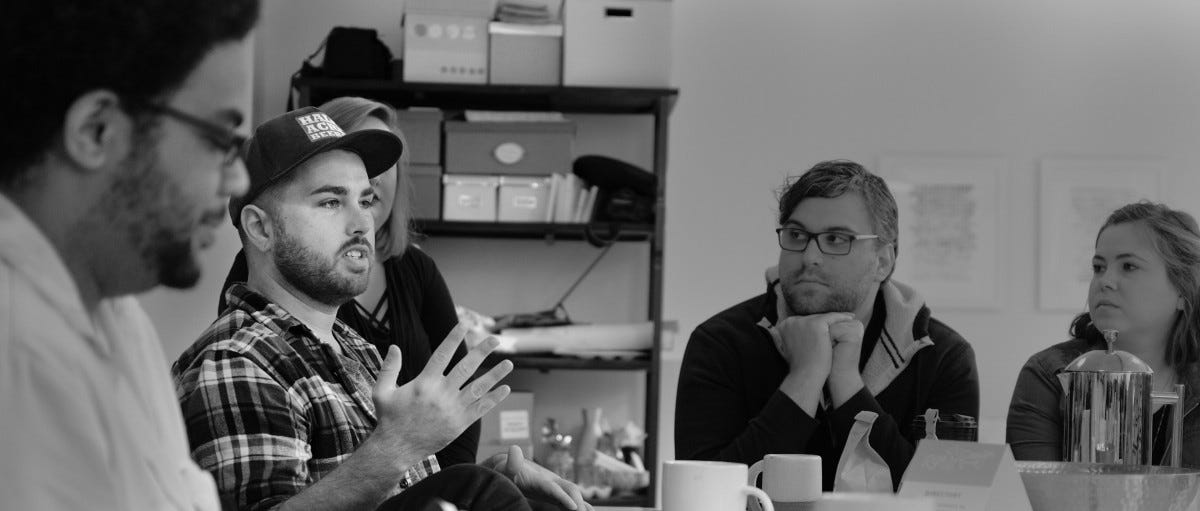Reppin’: When an Agent Makes Sense for You
Occasionally cutting your teeth as a fresh designer means chipping a tooth. A portion of this post was originally published in Design…

Occasionally cutting your teeth as a fresh designer means chipping a tooth. A portion of this post was originally published in Design Nuance, a blog series from my site about navigating novice freelance decisions with the finesse of a pro. This post has been changed and updated for accuracy.
I received a wonderful set of questions from upstate NY designer, Jacqui McCullough, regarding the sought-after freelance lyfe, which prompted this long-overdue update on agent acquisition.
Do you have any tips when it comes to working with an agent? Do you have any tips for someone who is a recent graduate and is planning on applying to creative agencies?
Artists and designers at all stages ask me about the perks and setbacks of having a rep. My answers have changed over the years, but the questions remain the same.
A TL;DR “Are you Ready for an Agent” Quiz
Answer YES/NO to the following statements.
I want an agent to find me work.
I want an agent to do my paperwork so I can just make art.
I want an agent to put my work in front of bigger clients.
I want an agent working for me to give me a professional vibe.
I want an agent to vet poor opportunities so I never have to deal with them.
I want an agent to validate my style as sellable.
How’d you do? If you found yourself answering yes to most of these statements, I’m sorry to say you’re probably not ready. A need for a rep blossoms out of excess, needing to offload certain tasks because growth is impossible as a solo act.
Validating your own style, garnering work, and appearing professional is on your shoulders as a maker, but every self-motivated designer inevitably needs more room to flourish and therefore requires more hands on deck.
An agent is a nebulous title these days, the best are willing to flex in accordance with their artist’s needs. Pre-Internet, a rep was like a canvasser, a cheerleader, and an ambassador to physical businesses. The more boots on the ground passing physical portfolios into hands, the better. Most agents were located in high density cities like New York, LA, and London to better hustle on behalf of their roster. Now in an era of global connectedness, an artist can attract the attention of larger brands with a clever handle and consistent social platforms from the comfort of their couch in Bumf*ck, IA.
The primary role of an agent is to optimize your time and serve as an extension of your business. Equally, any CPA, lawyer, marketing person, or intern should perform the same function. Bringing new people into your business is about reclaiming your time, à la Maxine Waters. An agent is helpful when you’ve successfully pitched social campaigns but have no reference point for broadcast pricing. You’ve negotiated contracts with art buyers, but it’s taking up precious time going back and forth. If you find yourself spending hours of your life handling a tertiary component of your business that detracts from production or upward mobility, a rep is a great idea.
Optimization looks different for everybody. In my case, my agent Ryan usually functions as a producer; he vets potential photographers and stylists, organizes calls and deliverable deadlines, works with me to establish studio schedules and workflows, occasionally sources materials when I can’t find enough on my own. Sometimes he’s on set to offer support or negotiate any last minute additions to the project. He also writes my contracts and conjures up quotes. No paperwork leaves his desk without my okay.
As a freelancer or independent business, you never want to become completely beholden to your contractors. While my agent is indispensable, should we unforeseeably part ways, I can still do my own negotiations and write proposals for smaller gigs, so having someone on staff to help doesn’t completely protect me from paperwork.
Ultimately, the best kind of agent is the one you’re happy to pay; scope creep is halted, the project is far more profitable than if you’d priced it out yourself, and you’re paid on time. The worst feeling in the world is looking at a paycheck after a difficult gig and wondering where all the money went.
Minimum Requirements
These are the Jerry McGuire, you-complete-me-you-had-me-at-hello bare minimum requirements. This person is your wing(wo)man, scheduling meetings, hooking you up with potential opportunities and facilitating delivery dates. They are the bad cop to your good cop, fighting for better numbers and enforcing late payment fees. They are the Walmart greeter to your brand, preparing clients to experience your workflow by embodying your culture and establishing connection with the first reply. They are your cheerleader when something cancels or goes awry. If you find the right person, they will do everything in their power to make you look good, and if they lack a skill, they will hire someone to fill their deficiency.
Because reps are human beings, they will take nights, weekends, and holidays off, and they will expect you to do the same. Good ones respect your need to walk away from potentially bad gigs and encourage you to rest. Essentially, hiring the right rep will make you money and provide some peace of mind. Ensure they leave a clear paper trail of invoices, emails, etc. so you can keep track of their percentages and your taxes with ease; transparency speaks volumes about their organization.
I absolutely love my agents at Satellite Office; my former agent Erik came down to help me with a gig at SXSW and provided invaluable assistance as an herb fluffer. He joined me on set to better understand what I offered and therefore how to prep clients for timetables and policies. My current agent Ryan often functions as a producer, production assistant, and studio manager; he’s flexible, wearing as many hats as I do. He’s warm, agreeable, communicative, organized, and is the last person to give up on finding a solution that works for all parties. He regularly attends a creative meet-up I cohost for entrepreneurs and artists. When I asked him to host an AMA, he generously shared how he courts artists and used examples from our partnership to illustrate his services. Encountering Ryan is a natural extension of encountering me, as he also represents my character.
My first projects with Target, Belcampo, and Macaroni Grill I handled myself, so I felt comfortable with big business policies. While I can’t fully escape the grind of business, I can rest easier knowing I handle less and trust someone who enjoys solving these problems.
I would heavily encourage anyone looking into representation to first do their own billing, negotiation, marketing, paperwork etc. so they know what they’re paying to offload.
The Voice
Yes, good studio managers want original talent. If you’re heavily leaning on Jessica Hische’s portfolio and apply to Frank Sturgess, he’s not going to take a competing style, much less a poor look-a-like. Look for collaborators that protect the agency of their artists. Ryan has turned people away because they saw themselves as related content to the current roster; this is social media logic, which, while understandable doesn’t apply to agencies. Taking on similar artists results in cannibalism within the agency. When people on the same roster vie for jobs, the negotiations feel more like a casino and less like an auction. Negotiations benefit from competing entities. Monopolizing the market can benefit the agency, but ultimately doesn’t benefit the artists involved. A house divided, as Abe Lincoln once said.
A voice proves a few things along from technical skill: brand cohesion, marketing prowess, general vibe, future trajectory. Agents are more like cohorts looking to align with someone that will put equivalent effort into the proverbial group project. They’re aligning their brand with yours, so it’s crucial to prove you’re as hardworking, professional, and resourceful as they are.
When an agent aligns personally with your voice, business magic can happen! Ryan and I share a love (and let’s be honest, mild to moderate distaste these days) of Kanye West. A couple years ago, I started gluing Swarovski crystals onto emu eggs and wondering what drew me to this compulsion. I sent him “Omelette You Finish” photos via text as I snickered and stuffed spinach between egg folds, tested tips to “push miracle whips.” We’d send gifs and lyrics back and forth until one day he announced he’d pitched this project to Wix. The rest is My Beautiful Dark Twisted History. This opportunity materialized simply because Ryan loved my work enough to share it with a contact on another artist’s project to curate a larger campaign collaboration. This connection might have been made if we weren’t friends, just colleagues, but it’s less likely.

Make You, Make You Notice
I almost always get asked about how having a business manager is perceived by clients. While having a third party speaking on my behalf appears more professional, it does not bolster my sense of self worth.
Nobody can validate your work unless you first believe it is intrinsically deserving.
A rep feeds off your enthusiasm and encourages you to raise rates or walk away from a bad situation, but ultimately you have the final say. Together Ryan and I have worked out a series of red flag statements that we gauge when fielding inquiries. There are times when I’ve decided to walk away but he’d like to ride out the discussion. He can function as a blow softener when I have to step away and absorbs my rationale before tastefully translating a decline. I usually see the rough draft before sending. Some days he’s playing phone tag and juggling bristly negotiations that never pan out while I’m sipping coffee at a café.
At the most basic level, sometimes I‘m paying my agent to have a bad day on my behalf. And I appreciate the hell out of his efforts.
I see representation like dating; you’re dazzling someone with your point of view, your goals and ambitions. They in turn are forecasting opportunity, freedom and growth potential. If you align, eventually you hand over a spare key to your portfolio. If you’re willing to invest in the relationship and find an eager partner, they’ll be there to both celebrate your triumphs and console you through the ugly cry sweatpants stages of your career.
Like any partner, they can’t complete you, only support and encourage your growth, a path that ultimately betters all parties involved. The secret of the TL;DR checklist: when your motivations are in the right spot, as with any other like story, each box is checked off anyway.




